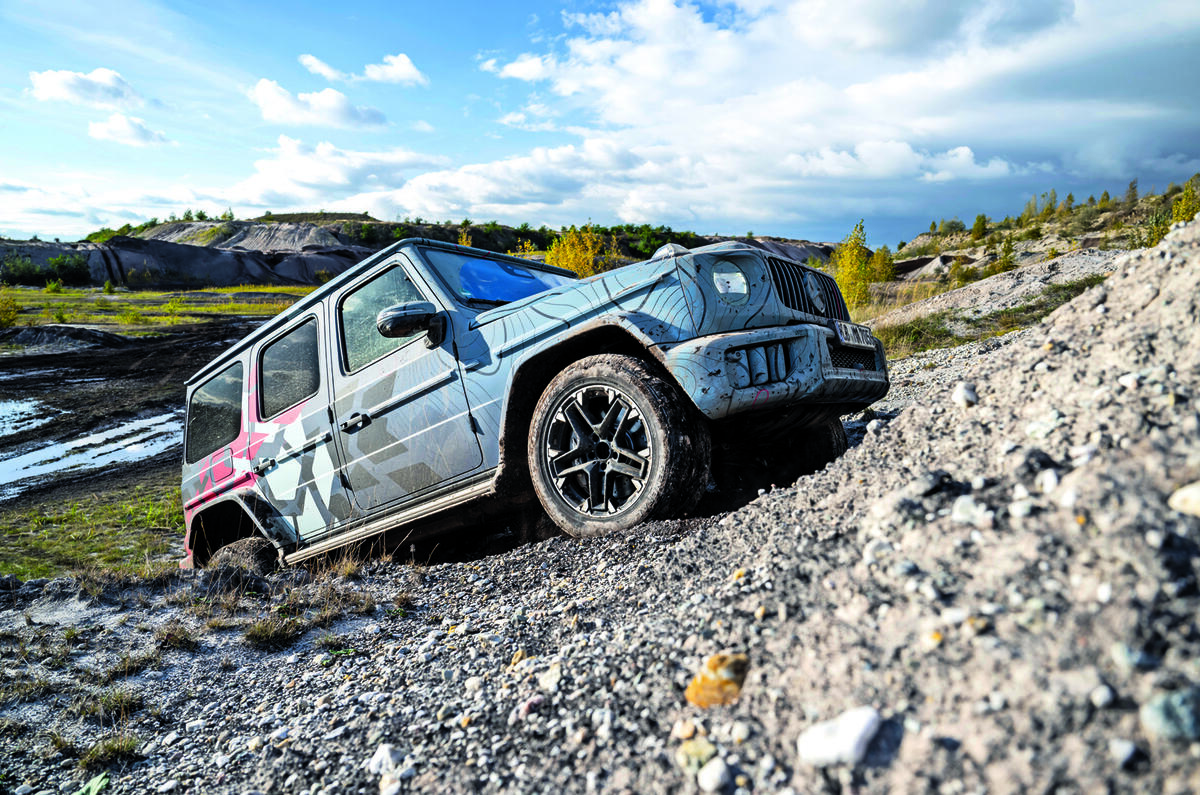An upgraded version of the internal-combustion-engined Mercedes-AMG G63 will launch alongside the long-awaited battery-electric EQG in 2024.
The off-roader, revealed here undergoing testing in prototype form ahead of a planned unveiling in the middle of next year, will receive a number of key developments, including a new semi-active suspension similar to that seen on the Mercedes-AMG SL and AMG GT sports coupés.
The ‘kinetic’ suspension set-up, which will be offered as an option on the V8-engined Mercedes-AMG G63, does away with traditional anti-roll bars and replaces them with a system that uses interconnected electrohydraulic flow valves that allow continuously variable rebound and compression damping.
This alters damping force from side to side and from front to rear depending on road speed, steering wheel angle, body movement, driving mode and external conditions.
The compression units of the dampers on one side of the new G63 are linked via the electrohydraulic flow valves to the rebound units of the dampers on the other side and vice versa.
When a wheel compresses, the piston within the damper extends upwards and hydraulic fluid flows across to the other side to support the rebound properties of the opposite damper.

This results in improvements in body control, ride quality and off-road performance, according to AMG, which is also developing kinetic suspension for other upcoming models.
The stiffness of the damping is controlled by two accumulators – one for the front wheels and another for the rears.
These nitrogengas-filled metal spheres use a flexible membrane to collect excess hydraulic fluid and distribute it into the flow valves for extra damping stiffness when required.
Because the compression and rebound properties act independently, the kinetic suspension is claimed to provide a wider tuning range between its minimum and maximum damping levels.
Replacing anti-roll bars with semi-active dampers also provides the G-Class with an as-yet-unspecified weight saving.
Wheel articulation is also said to have been improved. Further changes in store for the G63 in 2024 include the adoption of a new mild-hybrid powertrain.
Already used by the GLE 63, it combines AMG’s twin-turbocharged 4.0-litre petrol V8 with a 48V startergenerator that produces 21bhp and 184lb ft, for total outputs of 603bhp and 627lb ft.








Join the debate
Add your comment
Sounds like there should be some thanks to BMC's Hydrolastic suspension developed in the 1960's.